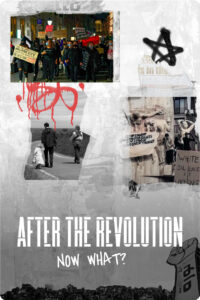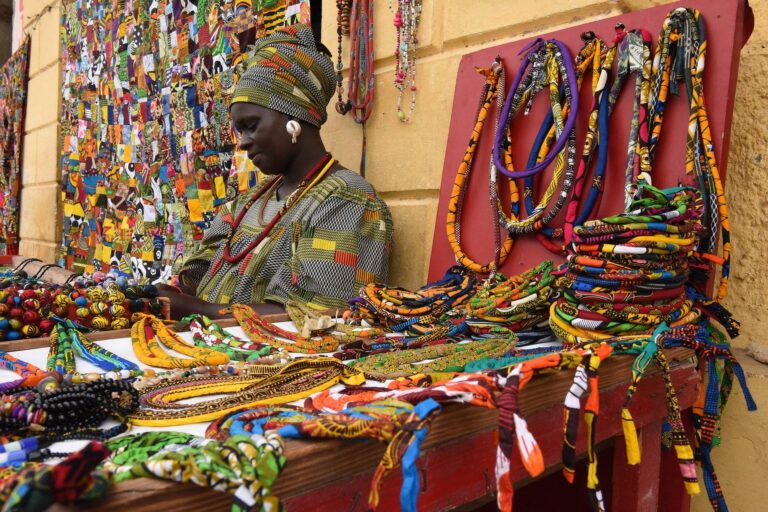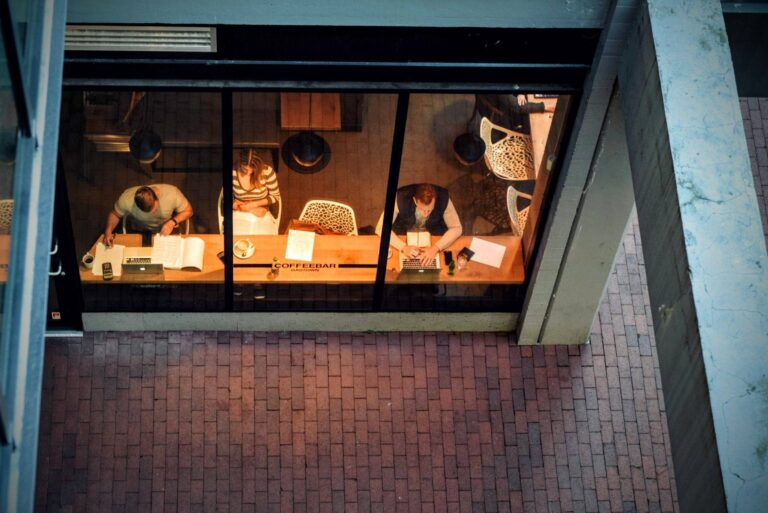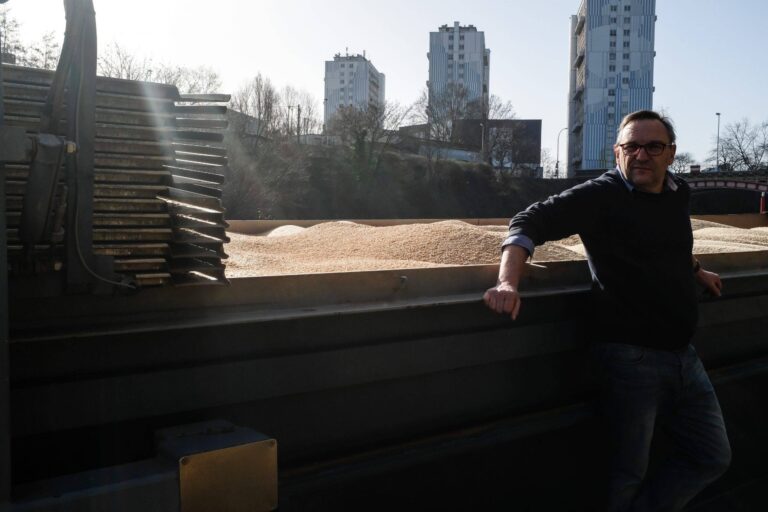Absolute calm. The scene is unusual at the Fith-Mith market in Guédiawaye. A city created a little over fifty years ago to be a dormitory for the poor workers who came from the countryside and a resettlement center for those living in the slums of Dakar. Because of the impossibility of the Senegalese capital to grow anywhere else than north and south of the city (it is a peninsula) and because of the conurbation, it became a popular suburb, where nearly 350,000 souls live. Here, the ill-informed theorists of the reign of the fertile African woman over-populating the planet would have voiced their outrage. But in these times, with the Covid-19 induced psychosis and Ramadan, you’ll have to come back if you want to see the popular side of Guédiawaye. The few people met in the street have half their face covered by a mask. Often made locally, they are sometimes in wax prints with shimmering colors. Only a few cars parade, waddling like top models between potholes on the asphalt of this two-lane road. When I caress with my eyes the limits that border the market, it almost turns into a desert. It’s closed this Sunday. Since the new measures taken by the state of Senegal on May 12, markets are closed one day out of seven for disinfection and cleaning.
However just a few metres away, Aïda Fall, a 47 year-old mother of 5 children “fashioned out of God’s wood” as she refers to her kids, is selling an appreciable variety of vegetables, including lettuce, carrots, cabbages, turnips, tomatoes and cucumbers. Tired of this game of “catch-me-if-you-can” she puts down her “weapon”. The real worries are elsewhere. I ask her about the desperation that I can read in her face. Her response is somewhat rhetorical: “What can we say or do that would make a difference?” she complains, at first with some decorum. “This catastrophe [Covid-19] has robbed us of our income. The small shopkeepers of Senegal are dying. Our customers prefer to go to the supermarkets because they say it is more hygienic there!” She purses her lips and inhales deeply, making a hissing noise that perfectly expresses her disdain. It has to be said that her frustration is real. Far from the village where she was born, deep in the countryside, she had no choice but to join the rural exodus, coming to live and seek her fortune in the city of Guediawaye. The appearance of Covid-19 in Senegal had marked the beginning of the slippery slope towards hell. Like in Verdi’s opera of the same name, Aïda is feeling desperate. Even if a sense of pride prevents her from revealing exactly how much she is losing due to Covid-19, she nevertheless concedes that “daily sales have been divided by 5, even on a good day”.
But that’s God’s will. We pray that it will be over as soon as possible. As the saying goes ‘Man proposes, God decides!
Fary Sall, marchande
Standing proud, in spite of it
A few hundred meters from there I find myself at the famous bus station “PAI”. It stands for Parti Africain de l’Independance — the African Independence Party. Only three decades ago, it was the scene of major political struggles, because this was home to the party’s historical headquarters. Its leader, Majmouth Diop, who died in January 2007, was one of the major figures of Senegal’s extreme left-wing politics. Radical opponent of Leopold Sédar Senghar — and depending on what was at stake — brother-in-arms of the Frenchman Georges Marchais, he would not have recognised the square. Not much remains of the scene where African leaders would come to discuss independence and pan-African politics. The headquarters of the PAI has been replaced by a bakery, a pharmacy and a road that has been under construction for the last 2 years. But Majmouth Diop is not the neighborhood’s only historical figure. Competition comes in the form of a certain Fary Sall. 50-something and stocky, Ndokette (“wide dress”, in Wolof), is colorful, wearing a white mask that covers half of a face which is almost doll-like. A proud woman, only with fewer pretensions. “This has been my spot for almost 20 years now,” she says. Fary’s selection of fruits is spread upon a large table which is too big to be covered by the shade of the umbrella, now faded by the sun beating relentlessly down upon it. Like a bystander watching cars race past on the freeway, Fary watches the people walking past her stall without stopping. For once, she has the time to observe the faces, thirsty and strained by the demands of Ramadan. Each one has his or her own way of facing the challenge. Some wear sports caps, others cover themselves with shawls, a tactic which seem somewhat counter-intuitive. Sure, they insist that they can protect themselves from the heat by covering themselves up! Fary has used her time wisely, organising her little corner to maximum advantage. Thanks to a little tent she is out of the direct sunlight. And in the unbearable heat, a younger woman is also sharing this haven. “That’s my daughter,” she tells me later. Not far away, a horse is tethered. Without bit or halter, the horse wanders as far as the rope attached to its foot will allow. It even plays with two sheep. For somebody from the countryside this is a pleasing distraction. Beneath her white mask, a broad smile appears, or at least that’s how I imagine it, as I observe the still-visible parts of her beaming face. Life has been difficult for Fary since Covid-19 arrived in Senegal. “We still give thanks to God. We suffer the consequences of the illness. People either flee or they take care. But that’s God’s will. We pray that it will be over as soon as possible. As the saying goes ‘Man proposes, God decides!’ So all we can do is pray. Above all else we need to take precautions: wear a mask, wash our hands regularly with soap or hydroalcoholic gel. And apart from that, all we can do is pray, wait and hope that everything will come back to normal, like before,” explains the 50-something, suddenly letting down her proud facade. Her faith is really all she has left, apart from a kind of repetitive, automatic gesture of rubbing her hands back and forth over certain creases in her white dress, a garment which has seen better days.
“Before the illness, some days I would stay here late into the evening. There were even young men who would come and sit here in my space to keep me company, drink a coffee, talk and solve the problems of the world. However, they don’t live around here. We were linked through life’s hardships and so we would support each other too. Sometimes we would even eat dinner here and go home after midnight. Nowadays, that’s impossible. I pack up my stuff just before 8pm so as to respect the curfew. I live not far from here,” she says, pointing towards a small lane not far off. Today, the curfew is from 9pm to 5am, but at the time [from March 24th to May 12th], it was 8pm to 6am. Even so, this hasn’t changed much for Fary.
Just then, a customer approaches. Wearing a djellaba with black and white stripes, mask and small cap, he wants to buy some pears. But Fary hasn’t got any. The guy heads off, only to come back a few seconds later asking for other fruits. Fary asks her daughter to take care of him, giving her time to finish with me. The customer takes great care choosing the mangos, bananas and apples. The young girl takes several yellow plastic bags and fills them with his fruit and he leaves after thanking her. Fary puts the money in her wallet, feeling very pleased. She lifts a fold in her robe and reaches in to slip it into her money belt, strapped firmly to her body just above kidney level, over the top of her undergarments. It’s a common-place ritual for casual vendors like her. A hiding place which protects against aggressions and muggings on the street. Once the money is safely tucked away, Fary is pleased to put a few francs into her stash. “My clientele has really fallen away. Even the most faithful customers stay away as if I had the Coronavirus myself!” she says with regret. Even as a casual business, she has felt the fall in income, without necessarily telling me exactly how much.
The curse of the travelling salesman
I leave Fary and her daughter to their business. A few lanes further on, past the horn of a tricycle converted into a mobile ice cream stand for kids, past the rattle of a horse and wagon hurrying past at speed, I come across an enclosed square. A man staggers about, in disorientated fashion. He stops at the foot of a wall, leans against it then slumps onto a bench. I’m standing in front of the main entrance to the CEM Ndiarka Diagne, one of Guédiawaye’s colleges. A backpack sits next to him. A cap sits on his knees, a mask on his face. “My name’s Malèye, and I’m a walker.” This expression “a walker” is a diminutive of “walking salesman” or a street vendor. In Senegal, this category of salespeople is a regular part of the landscape. Door-to-door, they try to flog all kinds of products which they carry in backpacks or in suitcases on rollers. “I sell anything that could be useful in the home, depending on what I’ve got in stock,” he explains. They knock at every door. Real smooth-talkers, some of them could rival a Wall Street trader.
But during the Coronavirus, much has changed. The doors, whether of houses or apartments, rarely open these days. Families have become very cautious. The illness has created a kind of psychosis. Everyone protects themselves as much as possible.
And so the Covid-19 continues to lead its hellish dance without us knowing when this sabar will end
“I’ve been walking like a robot for hours. I have to rest a bit before heading home again. I may as well go home since nobody is buying my stuff. Why should I sweat like crazy under this sun, in the middle of Ramadan, when nobody’s buying anything?” he repeats, as if to convince himself. An air of resignation oozes from him like the sweat that covers his prematurely balding forehead. “I’m not blaming anyone. Everybody is protecting themselves as much as they can. But luckily for me, I have a few faithful customers who call me up still. If it weren’t for them, I’d probably stay at home and wait for the worst of this to be behind us.” With that said, he stands up, brushes the chalky cement dust off his trousers, hauls his heavy backpack into position and trundles off, weaving like a ship in high seas, buffetted by high winds.
At around 6pm, the sun loses the worst of its bite. Despite the final rays, the cool of the evening progressively gets the upper hand. Guédiawaye may be a town that lacks a lot of things like basic infrastructure, but it is a coastal town which takes pride in the sea breezes which attenuate the heat at the end of each afternoon. The town’s name, Guédiawaye means “the singing sea” in Wolof. With the arrival of this welcome freshness, it is also the moment for the couscous vendors to come out. They come often with large pots full of couscous, along with some sachets of the same product. A few of them set up in their regular spots. Others, because of the curfew, have decided to roam the streets, knocking directly on the doors, hoping to find takers. Astou is one of those, with her frail silhouette and kind face, despite a deeply ingrained look of hardship. This young teenager combines study and work. Encountered in a street in the neighborhood of Fadia, on the outskirts of Guédiawaye, Astou carries a large bowl of Senegalese couscous atop her head. Her stride is quick, the pace rapid, as if constantly pushing herself. Trying to get a few words from her is a bit like trying to interview Usain Bolt just after he’s broken the 100-meter world record. “My mother always tells me to stay put, in the same place,” she blurts out, explaining her movements. “But I tell her that with the curfew and Ramadan, this’ll probably mean getting no customers. When people don’t leave home, you have to go out and find them.” You can read the determination on her face. I make up my mind to stick with her as she goes about her business.
Is facing danger in order to go and sell her products a way of being useful? “My mother prepares the couscous. I look after the sales side, to help her. She’s starting to get a bit old. She’s always looked after everything. Now it’s up to me to take up the slack. I can sell up to 1,500 CFA Francs worth of couscous. Sure, that’s not a lot really, but it’s better than nothing as we wait for things to improve again,” says the young woman whose father died when she was an infant. Between two clients, she continues along her way. Still in a hurry, a determination in her stride.
Help us tell the world to you !
Frictions is launching its club : by supporting Frictions, you’ll be supporting a community of authors and journalists who tell the world through intimate stories!

Ghostly hair-do
In the Senegalese streets, one of the first signs of Covid-19 is the sprouting of thick mops of unkempt hair. In a country where men are often trimmed close to the scalp, the fear of the virus was transformed into fear of the barber’s shop, where bodily contact and proximity constitute a source of risk.
Mouhamed knows this only too well. In normal times, his barber shop is crammed with people. With a youthful face of a 30-something, still a bit pimply, this young man comes from Guinea, the neighboring country whose capital is Conakry. He specialized in hairdressing, as many of his immigrant compatriots have done. “We have seen practically nobody since the beginning of the crisis. Actually, when you walked in here and I saw your bushy hair, I thought you were here for a cut,” he says laughing. “But I’m not complaining, luckily I also sell telephone accessories, call-time credit, and I also transfer money. That’s what’s enabled me to keep my head above water.”
Such a hybrid career is not something everyone can manage. In the neighborhood of Darou Salam (meaning “place of peace” in Arabic with a Wolof twist) Ousmane is also a hairdresser. But this is all he does, and this is his unique source of income. This fear of the barber isn’t good for his business. He tries to reassure his customers. “I’ve got a glove, hydroalcoholic gel, and a mask,” he says, pointing to it. “I disinfect my clippers regularly. I take all the right precautions, but it makes no difference. Maybe people are waiting for us to go and cut their hair at home. Go figure!” The hairdresser isn’t hiding how tough it is for him. He used to make up to 20,000 CFA Francs a day. He’s lost more than 80% of that.
And so the Covid-19 continues to lead its hellish dance without us knowing when this sabar will end. Those in the casual job sector try to adapt and keep up, follow the rhythm. Despite the danger of contracting the disease, the humble individuals whose livelihoods depend on the sector have no choice but to labor on, in the field. They are oblivious to the home-office trend that took hold in countries that possess more smartphones than people. Faced with the choice of dying from the virus, or from hunger, they have chosen!









